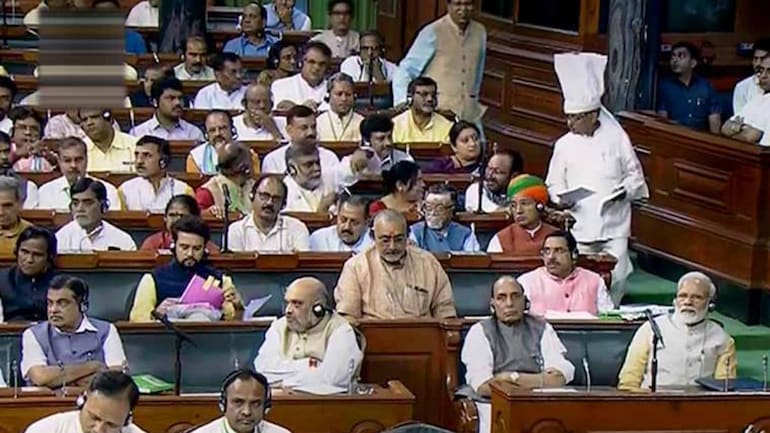After an aborted attempt in 2018, the central government proposes to amend the Right to Information Act of 2005 (RTI Act) to change the term of office and service conditions the Chief Information Commissioner (CIC) and Information Commissioner (IC) at the central as well as state levels. These aspects are now proposed to be determined by the central government.
A Bill for the purpose was introduced in the Lok Sabha today.
What the amendment says
The Right to Information (Amendment) Act, 2019 proposes two fundamental changes.
One, it proposes to change the tenure of the CIC and IC at the centre and state levels from five years or until the age of 65 years at present to "for such term as may be prescribed by the Central Government". Two, it proposes change in their salaries and allowances "as may be prescribed by the Central Government".
The original law 1 provided that at the central level, the salaries, allowances and other terms and condition of service of the CIC and IC would be the same as that of the Chief Election Commissioner (CEC) and Election Commissioner (EC), respectively. At the state level, those for the State CIC and State IC will be the same as the EC and the Chief Secretary to the state government, respectively.
The Election Commission (Conditions of Services of Election Commissioners and Transactions of Business) Act of 1991 2 provides that the salary and other service conditions of the CEC and EC are equal to a Judge of the Supreme Court.
Thus, the salaries, allowances and other terms and conditions of service of the CIC, IC and State CIC are equivalent to a Judge of the Supreme Court.
Why the change?
The Statement of Objects and Reasons of the RTI (Amendment) Bill, 2019 reasons that the functions being carried out by the Election Commission of India and the Central and State Information Commissions are "totally different". While the Election Commission is a constitutional body established under the Article 324 of the Constitution of India for conducting elections to the Parliament and State Legislatures and to the offices of the President and Vice President held under the Constitution, the Central and State Information Commissions are statutory bodies established under the RTI Act of 2005.
"Therefore, the mandate of Election Commission of India and Central and State Information Commissions are different. Hence, their status and service conditions need to be rationalized accordingly", it adds.
Implication of the proposed changes
Not only the RTI activists and opposition political leaders but also former information commissioners have been strongly opposing such amendment. They fear it would compromise autonomy and independence of the information commissions and the commissioners. It was their protests which had forced the government to desist from introducing such an amendment in 2018 after having circulated it among the Members of Parliament.
Prof Sridhar Acharyulu, who served as the central Information Commissioner during 2013-2018, says the amendment makes information commissions subordinate to the government. "This has dangerous implications. The whole edifice of the RTI's implementation stands on the way the information commission deals with it. The independent interpretation of the RTI Act is possible only with its independence from the executive," he says.
Acharyulu also points out that by diminishing the status of the CIC, IC and State CIC from that of a Supreme Court judge would reduce their ability to issue directives to senior government functionaries, adding that the change would "kill the RTI Act" and is an "affront to federalism, good governance and ultimately, democracy". He warns that it would also render freedom of speech meaningless.
Shailesh Gandhi, who also served as an IC at the centre during 2009-12, calls the proposed amendment "very unfortunate" as it shows that the government wants to control the independence of information commissions. He says no strong reason has been given for the amendment either.
Describing it as "completely inadequate", he says India's RTI Act is one of the best in the world and what is lacking is its proper implementation. The least the government should have done is to rush through without prior consultations with the stakeholders, he observes.
A prominent RTI activist, Commodore (retd) Lokesh Batra says "it is another attempt by the government to take away the autonomy of information commissions and amounts to killing the citizens' right to know.


No comments:
Post a Comment